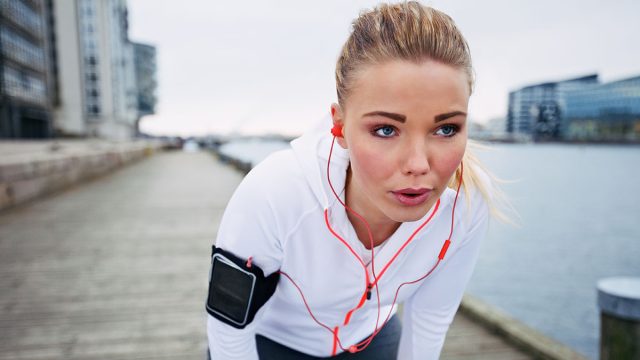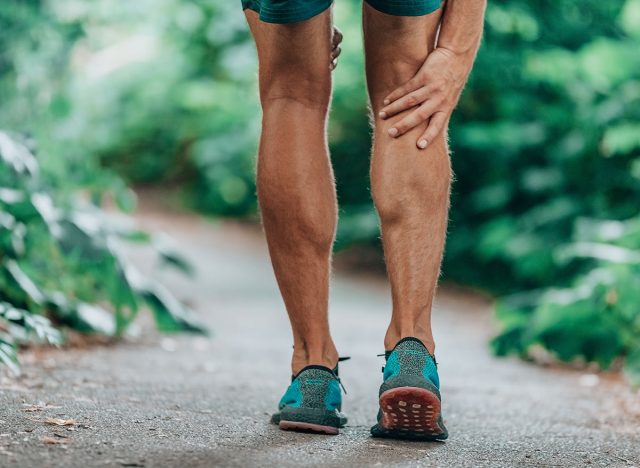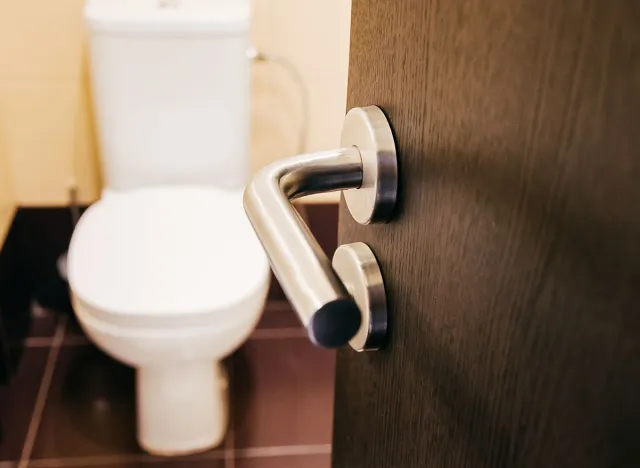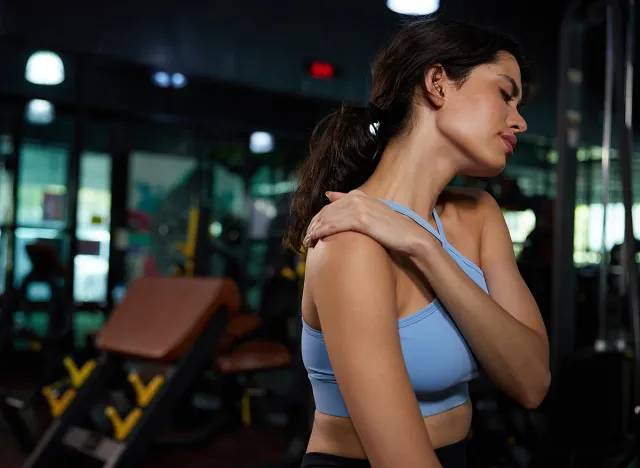7 Signs Your Body May Need More Magnesium

Are you dealing with the side effects of low magnesium? "Magnesium is an essential mineral in our diet. It is found in every cell in your body. It plays a critical role in hundreds of biochemical reactions that support many body functions, like protein creation, muscle and nerve function, converting food into energy and metabolism," according to Nebraska Medicine University Health Center. A magnesium deficiency can lead to many unpleasant side effects. Here are 7 signs your magnesium levels are too low.
Fatigue

Fatigue is a common symptom of magnesium deficiency. "If a person's magnesium levels remain low for long periods of time, they're considered deficient," Dr. Shelby Payne tells Houston Methodist On Health. "Identifying and correcting this is important since a deficiency is usually a sign that something else is going on, which is usually an underlying health issue that needs to be addressed."
Muscle Cramps

Muscle cramps could be related to low magnesium levels. Regular blood work doesn't usually check for magnesium levels. "These day-to-day symptoms can be very vague, so that's where blood work is needed to determine whether magnesium levels are actually low," Dr. Payne says.
RELATED: I Lost 30 Pounds While Walking Every Day For 30 Minutes
Nausea

Nausea could be connected to low magnesium in the body. "Ultimately, making sure your body is getting enough magnesium not only helps you maintain good health in general, it also may help you manage stress, migraines or muscle aches and pains," Naoki Umeda, MD, tells the Cleveland Clinic.
Constipation

Constipation is a common symptom of magnesium deficiency. "Once we find the primary reason for a person's low magnesium levels, whether it's IBD, a medication the person is taking or something else, treating or managing the underlying issue often resolves the deficiency," says Dr. Payne.
RELATED: The 9 Habits that Accelerate Aging
Heart Palpitations

Heart palpitations could be related to magnesium deficiency—but always check with a doctor to make sure that's what the cause might be. "Magnesium deficiencies can be hard to diagnose, partly because many of the initial symptoms could indicate a wide variety of other health issues," says Dr. Umeda. "And some people may not have any symptoms at all."
Loss of Appetite

Loss of appetite could be connected to magnesium levels. "Magnesium plays an important role in moving calcium and potassium through your body," Andrew Robert Eckert, DO, tells UPMC HealthBeat. "These minerals all help your nerves, muscles, and heart to function properly. A serious magnesium deficiency can lower these minerals' levels in your body. This can lead to the development of conditions such as hypocalcemia (low calcium levels) and hypokalemia (low potassium levels)."
RELATED: #1 Best Cardio Tip For People Over 40
Stiffness

Muscle stiffness could also be a sign of low magnesium levels. "You may need magnesium supplements, medications, or fluids to improve your magnesium levels," says Dr. Eckert. "Many multivitamins and dietary supplements contain forms of magnesium that are easy for the body to absorb."
💪🔥Body Booster: Magnesium deficiency can be dangerous, so talk to a doctor about any concerns.




